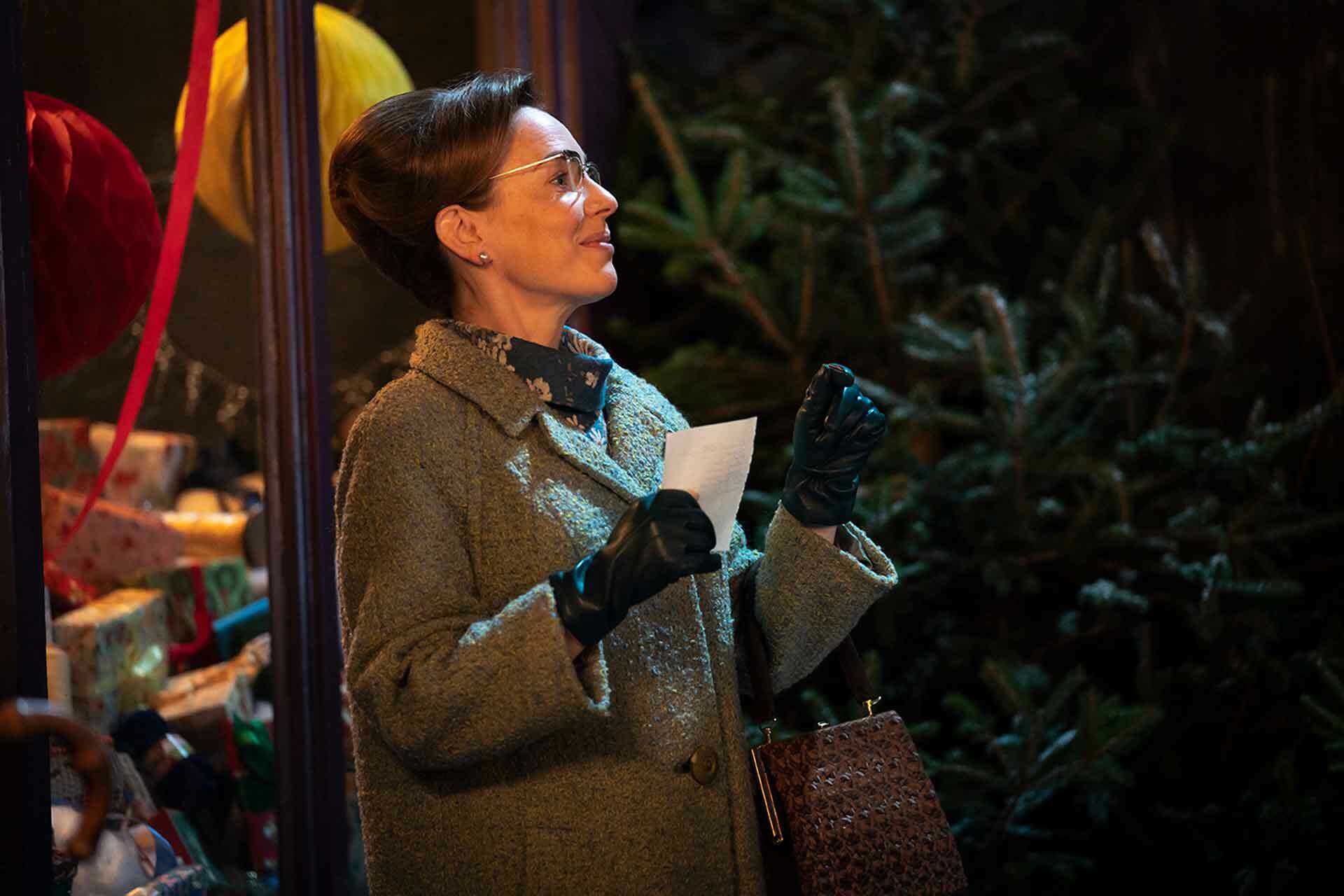
“All doors are opened at Christmas…” speak the words of Jennifer Worth (via narrator Vanessa Redgrave). The dreams of child and adult alike take on new meaning in the season, and everything seems possible – or at least it feels that way. For some, though, investing in the possibility of believing in a dream – or clinging to a hope long since invested in – is too much to bear.
Such is the scenario for Gloria, one of the main characters in this Christmas episode. With a history of seven prior lost pregnancies, the mere thought of daring to dream that her current pregnancy could end successfully is too high a price to pay, should her every hope be dashed yet again by another lost pregnancy and child. After the placement of a cerclage (a surgical stitch to help keep the cervix closed long enough to get a fetus to term) Gloria successfully carries this pregnancy to term. She is very reasonably plagued with any number of doubts and fears – what reason has she not to be? The physician’s dismissal of her anxiety with his patronizing speech to her husband that she should just “go home and think beautiful thoughts until her time comes. When the day arrives, bring her back, hand her over, job done” are anything but helpful or reassuring. Words undoubtedly spoken from someone who has never experienced a pregnancy loss (difficult to believe that providers said such things to patients even then, but even more difficult to believe that comments like this are STILL being made to patients).
Gloria’s inability to prepare for her baby’s pending birth (both with lack of ability to gather the tangible baby supplies, as well as to psychologically prepare for the birth) is completely understandable… she cannot allow herself to “go there” to that place where she could give birth to a healthy baby. Not allowing herself to conceive of the notion of having a healthy baby leads directly into her ability to labor, which seems “blocked” – something I have seen many times.
To say that we underestimate the tremendous interplay between mind and body that occurs during pregnancy and birth is a gross understatement. I have cared for women who have reason for not wanting to give birth on a certain day (the date is associated with negative events in their past, for example) who coincidentally begin labor on that day, but the labor does not progress the entirety of the day. As soon as the clock strikes midnight and the date turns over, the labor picks up and proceeds along as expected. I have also seen the opposite occur; women who honestly will their births to occur on a specific date (and I’m not talking because of induction of labor) because the date has such meaning to them (their deceased mother’s birthday, for example).
Shelagh Turner (portrayed by Laura Main), the astute midwife that she is, recognizes this is the situation with Gloria as she tells Gloria “Having to be brave can make us so afraid….” Shelagh understands that which is blocking Gloria’s labor from progressing as “something she cannot address or accept or admit” and knows that she must draw this out from Gloria if birth is to ensue.
The scene where Gloria is laboring, and Shelagh encourages her to talk about each of her prior 7 pregnancy losses - post the physician’s advice “not to fret over ancient history”– we witness the opportunity Gloria is finally afforded to process through each loss. Gloria speaks to how intimately she knew and remembers each one of the babies that she lost, what she envisioned they would have looked like as they grew, what their personalities would have been like. As she talks, we see through that processing the “unblocking” of her labor. After Gloria finishes – and not coincidentally is she now completely dilated and ready to push out her baby – at the point when Shelagh names each baby by name – it is breathtaking that we are also witness to the midwife’s acknowledgement of those lives, and Gloria’s gratitude for that acknowledgement “thank you for saying their names”. Further, when the new baby is placed into Gloria’s arms and she announces, “I’m a mother”, to which Shelagh responds, “you have BEEN a mother for a very long time,” well, that right there is some Emmy deserving writing my friends (though I know the Emmy is a uniquely American television award).
When people ask me about my work as a midwife, much of the time they assume it is comprised of Hallmark card moments with me joyfully placing squirming bundles into the arms of waiting parents. So much of what we do, however, as midwives, is what Shelagh did for Gloria; walk alongside our patients through the pain – physical and emotional – to get them through to the other side. And it is always a privilege…
Get Another Take: Recommended Call the Midwife Recaps
From Thirteen.org | The British Tele Dish
From WTTW Chicago | The Playlist Blog
From NPT Nashville | The Vanderbilt University School of Nursing Recap
From WETA Washington | The Tele Visions Blog
From WGBH Boston | Watch Drama After Dark or Read the weekly recap